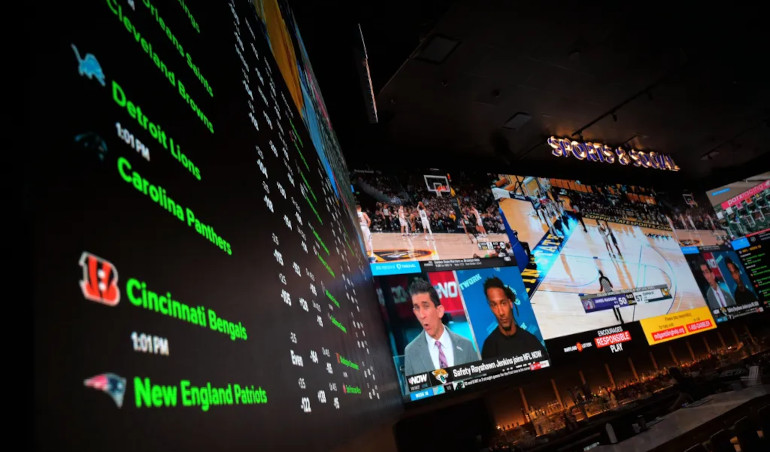Last updated on July 13th, 2024 at 09:13 am
Maryland sports betting tax revenue will be at least $60 million in the fiscal year that starts in July 2023 and ends in June 2024. According to a sportsbook pay per head guide, it is the first full year players could bet on their phones.
Convenience is critical for Marylanders, and most sports wagers placed from July 2023 to June 2023 were placed via mobile apps or platforms. This shift in betting behavior has significantly contributed to the industry’s growth. Live! Casino & Hotel Maryland in Hanover, which operates its mobile and retail sportsbooks through the gaming giant FanDuel, received approximately $2.4 billion in stakes. The state has yet to make plans to add licenses to allow more companies to open a sportsbook.
The Maryland Lottery and Gaming Control Agency officials anticipated a drop in overall state revenue from May to June.
Maryland Sports Betting Tax Revenue
 During the previous fiscal year, Martin predicted that sports betting would bring in over $56 million for the state. This was stated in May. According to online gambling insight reports, the agency’s expectations were exceeded by the $5.7 million it added in June, indicating a more modest decline going into summer.
During the previous fiscal year, Martin predicted that sports betting would bring in over $56 million for the state. This was stated in May. According to online gambling insight reports, the agency’s expectations were exceeded by the $5.7 million it added in June, indicating a more modest decline going into summer.
All of this money will go toward the Blueprint for Maryland’s Future, a grand and costly scheme to improve the state’s educational institutions and students’ academic performance through initiatives such as expanding access to early childhood education, raising teacher salaries, and creating more chances for vocational and technical training.
Although lawmakers have allocated funds to pay the Blueprint for the next three years, the roughly $40 billion, the 10-year plan needs a stable funding source. It will cause operational budget deficits of billions of dollars in the latter years.
Additionally, approximately $986,000 was raised through sports betting to fight problem gambling. Researchers, professors, legislators, and others who advocate for problem gambling resources have argued that the state should set aside a portion of the funds to aid those with gambling disorders. However, the legislature does not agree on how to combat compulsive gambling, even when 1% of sports betting revenue is proposed to be diverted.
Problem Gambling Fund
Along with the 2007 legalization of casino gambling, lawmakers established a problem gambling fund. However, despite the state’s expansion into other types of betting, they still need to enhance the fund’s revenue streams. While problem gambling programs get unclaimed funds from in-person sports betting, most sports wagers in Maryland are placed through mobile applications, which deposit winnings immediately.
To combat the gambling industry’s multibillion-dollar advertising campaigns, the Maryland Center of Excellence on Problem Gambling’s director of operations, Mary Drexler, has previously written to legislators requesting a specific source of financing so that the center may increase its marketing efforts.
In addition, as Drexler pointed out, the center would be able to create public awareness campaigns aimed at those who are particularly vulnerable to problem gambling, such as veterans with PTSD, and recruit additional treatment providers to join the state’s no-cost network using this.
It will be interesting to watch if the center’s efforts to enhance ties and maintain conversations with state and local lawmakers, as outlined in its most recent annual report, successfully secure the necessary funds next year.


